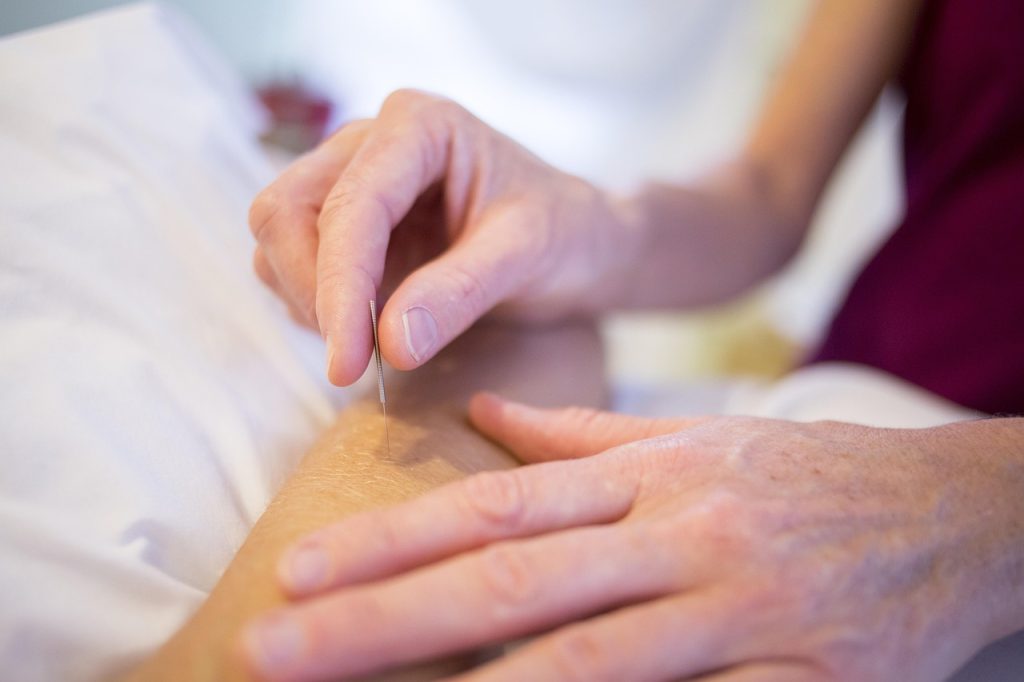Does Addiction Treatment Work? (Factors and Programs)
The prevalence of drug abuse in society raises crucial questions about the effectiveness of drug addiction treatment. Many individuals grappling with addiction, along with their loved ones, often ask, “Does addiction treatment work?” Understanding the dynamics of treatment programs is essential in addressing this query. This article delves into the various aspects of addiction treatment, exploring its intricacies and effectiveness.

Understanding Addiction
Addiction is a complex and multifaceted condition, often defined as a brain disorder characterized by compulsive engagement in rewarding stimuli despite adverse consequences. Substance use disorders are a subset of addiction, where the use of substances like alcohol and drugs leads to clinically and functionally significant impairment or distress (1).
Addiction profoundly impacts both mental and physical health. It can lead to a range of mental health issues, including anxiety, depression, and other mood disorders. Physically, addiction can cause long-term damage to vital organs, disrupt hormonal balance, and increase the risk of various diseases.
Brain Chemistry and Addiction
Understanding addiction requires an exploration of brain chemistry. Certain substances can hijack the brain’s reward system, releasing excess neurotransmitters like dopamine. This release creates a sense of pleasure or euphoria, reinforcing the behaviour and setting the stage for addiction (2).
Physical vs. Psychological Addiction
Addiction can be categorized into two main types: physical and psychological. Physical addiction is characterized by a physiological dependency on a substance, often accompanied by withdrawal symptoms upon cessation. Psychological addiction, on the other hand, involves emotional or mental reliance on a substance, where its use becomes a way to cope with stress, trauma, or other psychological issues.
The Progression of Substance Use Disorders
Substance use disorders often progress in stages. It starts with experimentation or occasional use and can escalate to regular use, risky use, dependency, and finally, addiction. Each stage brings its own set of challenges and impacts on an individual’s life, making early intervention crucial in addiction treatment.
Factors Influencing Treatment Success
Addiction treatment’s effectiveness is heavily influenced by various factors, such as personal growth, cognitive therapy, and education, chief among them being the treatment environment. Research indicates that a supportive and conducive environment plays a pivotal role in the success of drug addiction treatment. This includes a nurturing community, access to resources, and a setting that promotes recovery and well-being (3).
Tailoring a treatment program to meet individual needs is another crucial aspect. Personalized treatment approaches, which consider the individual’s unique circumstances, history, and preferences, significantly enhance the chances of successful recovery. Such customization ensures that treatment addresses the specific aspects of addiction relevant to the person, making it more effective.
Realistic expectations and staying motivated even in relapse are also key. Understanding that recovery is a journey, often marked by setbacks, helps individuals and their support systems to persevere through challenging times. Motivation plays a critical role in this journey, fueling the commitment to stay on the path of recovery.
Personal Motivation and Readiness for Treatment
Personal motivation and readiness for treatment are fundamental in determining the success of addiction treatment. When individuals are motivated and ready to change, they are more likely to engage actively in treatment, adhere to program guidelines, and work toward recovery. This internal drive can come from various sources, including personal desires to improve one’s life, health concerns, or the aspiration to mend relationships affected by addiction.
The Role of External Motivators to Stick with a Medical Treatment Plan
External motivators also play a significant role in sustaining commitment to a medical treatment plan. These include legal requirements, family expectations, employment conditions, and societal pressures. While these external factors can initiate treatment, the transition to internal motivation is often necessary for long-term success.
How Long Addiction Treatment Takes
The duration of addiction treatment can vary significantly, depending on the severity of the addiction, the type of substances used, and individual circumstances. Some individuals may require only short-term interventions, while others may benefit from longer-term treatment programs. It’s essential to understand that addiction is a complex condition, and effective treatment may require sustained efforts over an extended period (4).
 Types of Addiction Treatment Programs
Types of Addiction Treatment Programs
Addiction treatment programs are diverse, each designed to address different aspects of addiction and cater to various needs. Among these, inpatient treatment programs and therapy play crucial roles.
Inpatient treatment programs, also known as residential treatment, offer a structured environment away from potential triggers and daily stressors. These programs provide comprehensive care, including medical supervision, therapy, and support, beneficial for those with severe addiction or dual diagnosis. The benefits of such programs include a focused recovery environment, constant medical care, and a community of peers undergoing similar experiences (5).
Therapy is an essential component of addiction treatment, offering tools and strategies to manage addiction and its underlying causes. Various forms of therapy are used, each with its unique approach and benefits.
Cognitive Behavioural Therapy (CBT)
Cognitive Behavioural Therapy (CBT) is a widely used therapy form in addiction treatment. It helps individuals understand the connection between their thoughts, feelings, and behaviours and how these influence their substance use. CBT equips individuals with skills to manage addictive behaviours, cope with triggers, and prevent relapse. This therapy focuses on changing negative thought patterns and developing healthier coping mechanisms (6)(7).
Motivational Enhancement Therapy
Motivational Enhancement Therapy (MET) is another effective approach, especially in the early stages of treatment. It focuses on resolving ambivalence about quitting and enhancing motivation for change. Through MET, individuals are encouraged to draw upon internal motivations to change their addictive behaviours and engage actively in the treatment process.
Family Therapy
Family therapy is a critical component of addiction treatment, as it involves family members in the recovery process. This therapy helps address issues within the family system that may contribute to substance use and provides a platform for healing and rebuilding relationships. Family therapy also educates family members on addiction and how to support their loved one’s recovery journey (8).

The Role of Medications in Treatment
Medications for Addiction Treatment (MAT) play a pivotal role in the comprehensive treatment of substance use disorders. These medications work by normalizing brain chemistry, blocking the euphoric effects of substances, and alleviating cravings. MAT’s effectiveness is heightened when combined with counselling and behavioural therapies, offering a holistic approach to addiction treatment. This approach is designed to treat the whole patient, not just the addiction symptoms, ensuring a more sustainable recovery process.
Substituting One Addiction for Another
A common misconception about MAT is that it merely substitutes one addiction for another. This is not the case. MAT medications are evidence-based treatment options designed to normalize body functions without the harmful effects of the abused substances. They are used in controlled, prescribed doses and are not addictive when used as part of a supervised treatment plan.
Taking the Easy Way Out
Another misconception is that using MAT is taking the easy way out of addiction. In reality, overcoming addiction requires a multifaceted approach, and MAT is just one component of a comprehensive treatment plan that includes therapy, counselling, and support.
Only for Short-Term Use
It’s also mistakenly believed that MAT is only suitable for short-term use. However, the duration of MAT can vary based on individual needs. For some, it may be a long-term solution, as these medications can be safely used for months or even years under medical supervision. The key is a personalized treatment plan that evaluates the patient’s ongoing needs and adjusts the treatment accordingly.
Holistic Approaches to Addiction Treatment
 Yoga and Exercise
Yoga and Exercise
Yoga, a system of meditation routines, plays a significant role in holistic addiction treatment. Far from just physical postures, it integrates mindfulness with divine consciousness, offering a balance between body and mind. This balance is crucial for individuals in addiction recovery. Yoga enhances physical strength, relaxation, and spirituality, contributing to mental stability during the recovery process. It has shown effectiveness for people recovering from alcohol and drug dependence and even those seeking to quit smoking.
Mindfulness and Meditation
Mindfulness and meditation are essential components of holistic addiction treatment. These practices focus on being fully present and aware of one’s body, facilitating natural curiosity without judgment. Mindfulness and meditation are effective in reducing stress and improving the management of reactive behaviours. They complement traditional addiction treatments by helping individuals recognize their subconscious state of mind, thus identifying healthy ways to manage cravings and suppress negative emotions like anxiety and stress.
Acupuncture
Acupuncture is an ancient holistic practice gaining recognition in addiction treatment. This therapy involves placing tiny needles at specific body points to balance the flow of energy or life force. It’s believed to stimulate nerves, connective tissue, and muscles, enhancing the connection between mind and body. Acupuncture is not only used for treating physical pain but also complements holistic treatments by contributing to the overall efficacy of addiction recovery programs (9).
Challenges in Addiction Treatment
The effectiveness of addiction treatment is significantly influenced by personal commitment and family support. Family members play a crucial but often invisible role in the mental health and addiction system. Their involvement can have profound impacts on treatment outcomes, including decreasing hospitalization and relapse rates, enhancing adherence to treatment choices, and increasing rates of recovery (10).
Unaddressed challenges in addiction treatment can significantly increase the risk of relapse. These challenges include cravings and withdrawal symptoms during detox, psychological triggers such as anxiety or grief post-treatment, and environmental factors (11).
Social Circles That Enable Drug Use and Drug Addiction
The social environment plays a critical role in addiction recovery. Social circles that include individuals who use substances or do not support recovery efforts can significantly hinder the recovery process. Peer influence can lead to increased temptation and relapse, making it essential for individuals in recovery to seek out supportive and understanding social networks that encourage and reinforce their recovery goals.
Lack of Access to Addiction Treatment
Access to addiction treatment is a significant barrier for many individuals. Factors like financial limitations, inadequate insurance coverage, or the unavailability of local resources can prevent people from receiving the necessary treatment. This lack of access not only delays the recovery process but can also exacerbate the addiction, leading to more severe health and social consequences.
Development of Stress or Mental Health Conditions
Stress and mental health conditions often develop as a result of, or in tandem with, addiction. These conditions can complicate the recovery process, as they may serve as triggers for substance use. Addressing these mental health issues is critical in addiction treatment to ensure a holistic approach to recovery, focusing on both the addiction and any underlying psychological factors.
Support After Treatment
Setting Concrete Goals and Milestones
Setting concrete goals and milestones is essential in early recovery. It helps individuals track their progress, stay motivated, and recognize their achievements, reinforcing their commitment to sobriety.
Accountability and Support Systems
Accountability to oneself and others, including therapists, peers, and support groups, is crucial in maintaining sobriety. This accountability provides a sense of responsibility and helps individuals stay on track with their recovery goals.
Substitution for Healthy Behaviours
Replacing addictive behaviours with healthy alternatives is a key strategy in sustaining recovery. Engaging in activities such as exercise, hobbies, volunteering, and other productive pursuits provides positive outlets and reduces the likelihood of relapse.
 Considering Addiction Treatment?
Considering Addiction Treatment?
If you or a loved one is seeking a path to recovery from addiction, 1000 Islands Addiction Treatment Centre offers a comprehensive, compassionate approach. Upon arrival, clients are accommodated in our stabilization wing for at least 24 hours, receiving 24-hour medical support and medication for safety and comfort in private rooms during this sensitive period. We provide medically supervised detoxification for various substances, ensuring a safe and comfortable withdrawal process.
Our inpatient treatment team, including skilled addiction counsellors and a psychotherapist, caters to the diverse needs of our clients. Accredited by the Commission on Accreditation of Rehabilitation Facilities (CARF), we maintain the highest quality standards in all our services.
Understanding the vital role of family in the healing process, we offer family programming with virtual weekly family education sessions. To support a holistic recovery, we prepare healthy meals onsite and provide a range of therapies, including art and music-based therapy, health and wellness programs, and comprehensive aftercare.
Begin your journey towards recovery and wellness. Visit 1000 Islands Addiction Rehab to learn more about how we can support you or your loved one in this journey to a healthier, substance-free life.
Information on this page is for informational purposes only, and does not replace personalized medical advice. You should never make any decisions about your health without consulting a healthcare professional, especially when related to substance use or mental health. To speak to a qualified member of our team for personalized advice, you can contact us here.
Sources
- CMHA – Substance use and addiction
- NIDA – Drugs and the Brain
- National Library of Medicine – Relapse Prevention and the Five Rules of Recovery
- 1000 Islands Addiction Treatment Centre – How Long Does Addiction Treatment Take?
- 1000 Islands Addiction Treatment Centre – The Benefits Of Inpatient Addiction Treatment
- 1000 Islands Addiction Treatment Centre – Therapy As An Essential Tool In Addiction Treatment
- CAMH – Cognitive behavioural therapy
- SAMHSA – Substance Use Disorder Treatment and Family Therapy
- 1000 Islands Addiction Treatment Centre – Holistic Addiction Treatment: Is it Effective?
- CMHA – Caring Together: Families as Partners in the Mental Health and Addiction System
- 1000 Islands Addiction Treatment Centre – The Primary Goals of Alcohol Addiction Treatment and How They Can Help You


 Types of Addiction Treatment Programs
Types of Addiction Treatment Programs
 Yoga and Exercise
Yoga and Exercise Considering Addiction Treatment?
Considering Addiction Treatment?